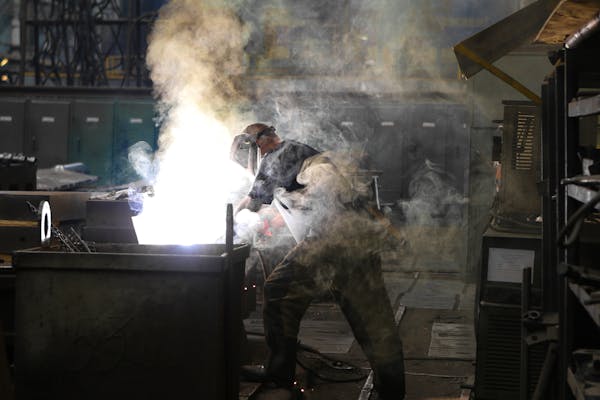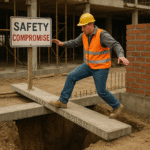|
Getting your Trinity Audio player ready...
|
Mental health is a critical issue in the Australian construction industry, particularly among tradies. The demanding nature of the work, combined with the traditional stigma surrounding mental health discussions, has led to alarming statistics about mental health challenges in this sector. This guide aims to provide practical strategies for tradies to manage their mental health, explore available options, and highlight government initiatives designed to support them.
Understanding the Mental Health Landscape for Tradies
The Current Situation
Recent studies indicate that tradies are at a higher risk for mental health issues compared to the general population. According to research from the Australian Physiotherapy Association, 25% of tradies experience mental illness, significantly higher than the national average of 20%. Furthermore, construction workers are reported to be 70% more likely to take their own lives than employees in other industries. The pressures of long hours, physically demanding tasks, and the stigma associated with discussing mental health contribute to this crisis.
Factors Contributing to Mental Health Issues

Many factors affect the mental health of an average construction worker, and they include:
1. Work Environment: Many tradies work in isolated settings where support systems may be lacking. This isolation can exacerbate feelings of loneliness and stress.
2. Cultural Stigma: The traditional “tough it out” mentality prevalent in male-dominated industries often discourages open discussions about mental health.
3. Financial Pressures: Economic factors such as fluctuating material costs and skills shortages have added stress to an already challenging work environment.
4. Physical Demands: The physical toll of manual labor can lead to chronic pain and injuries, which further impact mental well-being.
Practical Strategies for Managing Mental Health

1. Open the Dialogue
Encouraging open conversations about mental health is crucial. Tradies should feel comfortable discussing their feelings with colleagues or seeking help from professionals. Regular “toolbox talks” can serve as a platform for discussing mental well-being alongside safety concerns.
2. Look Out for Each Other
Creating a supportive work environment involves looking out for colleagues who may be struggling. Signs of distress can include irritability, withdrawal, or changes in behavior. If you notice these signs, reach out and ask if they’re okay.
3. Promote Healthy Habits
Implementing wellness programs at work can significantly enhance mental well-being. Encourage healthy lifestyle choices such as regular exercise, balanced diets, and limited alcohol consumption. Small changes like organizing social activities can also foster camaraderie and reduce stress.
4. Prioritize Breaks
Taking regular breaks is essential for preventing burnout. Encourage yourself and your team to step away from work periodically to recharge mentally and physically. Even short breaks can improve focus and productivity.
5. Educate Yourself and Others
Investing in educational resources about mental health can empower tradies to recognize signs of distress in themselves and others. Organizations like MATES in Construction offer training programs that focus on understanding mental health challenges.
6. Seek Professional Help Early
Tradies should not hesitate to seek professional help when needed. Early intervention can prevent more severe issues down the line. Consulting a GP or contacting organizations specializing in men’s mental health can provide valuable support.
7. Lead by Example
Business owners and leaders should model healthy behaviors by prioritizing mental well-being in their workplaces. By openly discussing their own challenges and encouraging others to do the same, they can help dismantle the stigma surrounding mental health.
Available Options for Support

Government Initiatives
1. MATES in Construction: This organization provides support services tailored specifically for construction workers, including on-site outreach programs that facilitate conversations about mental health.
2. Beyond Blue: Beyond Blue offers resources and support specifically aimed at tradies facing mental health challenges through various campaigns like “Boot the Blues,” which focuses on reducing stigma and promoting help-seeking behaviour.
3. Tradies National Health Month: Organized by the Australian Physiotherapy Association, this initiative raises awareness about both physical and mental health issues faced by tradies through community events and educational resources.
4. Work Health and Safety (WHS) Regulations: Under WHS laws, employers are required to manage risks related to both physical and psychological harm, ensuring a safe workplace for all employees.
5. Steel Blue Survey: Conducted annually in partnership with Beyond Blue, this survey helps identify specific areas where tradies need support regarding their mental well-being.
Community Support Programs
1. EPIC Support Program: This organization focuses on providing early intervention services for those working in high-risk jobs like construction.
2. The Healthy Tradie Project: This initiative incorporates wellness activities such as yoga and breathwork into outreach efforts aimed at improving mental health among tradies.
3. Blokes Psychology: Specializing in men’s mental health, this service offers counseling tailored specifically for men working in trades.
Conclusion
Mental health is a pressing issue among Australian tradies that requires immediate attention and action from both individuals and organizations within the industry. By fostering open dialogue, promoting healthy habits, seeking professional help when needed, and utilizing available resources, tradies can take significant steps toward improving their mental well-being.
Government initiatives play a crucial role in supporting these efforts by providing resources and frameworks designed to address both physical and psychological risks associated with trade work. As attitudes continue to shift towards a more open discussion of mental health, it is essential for everyone within the industry—tradies, employers, and stakeholders—to prioritize well-being as an integral part of workplace culture.
By embracing these strategies and initiatives, we can create a safer and more supportive environment for all tradies across Australia—where it’s not only okay to talk about mental health but encouraged as part of a healthy work culture.







